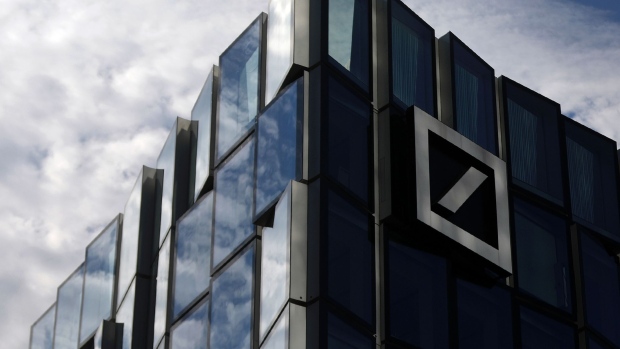Jul 21, 2020
Deutsche Bank says earnings will be better than expected
, Bloomberg News

Deutsche Bank AG signaled better-than-expected results ahead of earnings for the second straight quarter, adding to signs of progress in Chief Executive Officer Christian Sewing’s historic turnaround plan.
The bank’s common equity Tier 1 ratio, a key metric of financial strength, also unexpectedly increased, rising to about 13.3 per cent at the end of June from 12.8 per cent three months earlier, according to a statement on Tuesday.
It was bolstered by borrowers who had drawn down credit lines during the panic of the coronavirus pandemic repaid or refinanced them, especially late last quarter.
Deutsche Bank is rolling back decades of expansion as a global investment bank to focus more on European corporate clients and seek a return to profit after several loss-making years and piecemeal restructuring efforts. The increase in financial strength is a welcome development for investors as Deutsche Bank is funding the overhaul by drawing down capital levels.
The bank didn’t give more details on which other metrics beat estimates, while also saying a reduction of derivative volumes helped bolster its capital ratio. The repayment of loans signals that some of the panic among companies during the pandemic has ebbed. UBS Group AG also reported an increase in its capital ratio for the second quarter on Tuesday.
Deutsche Bank is on track or ahead of plan in its overhaul and saw continued positive momentum in its trading business through June, Chief Executive Officer Christian Sewing said at an event hosted by Bloomberg earlier this month.
That came before many of the top U.S. banks reported results that exceeded analyst expectations for trading revenue by a wide margin in the three months through June after benefiting from volatility during the pandemic.
Deutsche Bank was expected to post a 35 per cent gain in revenue from trading bonds and currencies to 1.99 billion euros (US$2.28 billion), according to the average of analyst estimates compiled by the company. Five U.S. banks roughly doubled their revenue from that business in the second quarter from a year earlier.
The shares declined 3.3 per cent as of 3:27 p.m. in Frankfurt, after earlier rising as much as 3.4 per cent. The stock is among the best-performing European bank shares this year, having gained about 24 per cent.
Deutsche Bank Is Best Performer in DAX. Analysts Don’t Buy It
Sewing and executives at U.S. banks have warned that booming trading desks are set to see the frenetic activity of the first six months ease as the exceptional market situation created by the coronavirus ebbs.
The investment bank division was expected to generate a 34 per cent increase in revenue to 2.44 billion euros and 712 million euros in pretax profit, up from 215 million euros in the second quarter of 2019, according to the analyst estimates compiled by the company.
Surprise Bump
While Sewing has delivered better than expected earnings on some metrics since taking over as CEO in 2018, it’s only the third time that he has had to disclose such a trend before the regular publication of quarterly earnings.
Deutsche Bank was expected to generate a net loss of 133 million euros in the second quarter and revenue of about 6 billion euros, according to company-compiled estimates. The company’s expenses were projected to fall to 5.3 billion euros from almost 7 billion euros in the prior year period, according to the estimates.
The German bank has exited or scaled back trading businesses where it doesn’t have a market-leading position, meaning it can’t profit as much from broader increases in market activity as peers with a wider product offering.




